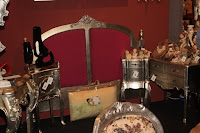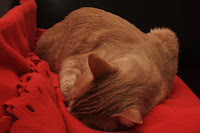 In Cambridgeshire Henry Morris invented the Village College to try and help to stem the flow of country folk to the towns. In Spain the 1907 Law of Interior Colonization and Repopulation had a similar aim.
In Cambridgeshire Henry Morris invented the Village College to try and help to stem the flow of country folk to the towns. In Spain the 1907 Law of Interior Colonization and Repopulation had a similar aim.Today we drove up the Sierra de Salinas mountain chain on the recommendation of one of our pals who had been up there on his bike. It was a lovely spot on a splendid blue sky day. Along the route we passed through an area that was signed as La Colonia de la Sierra de Salinas where, according to the information boards, 49 "poor but suitable" families were given their share of 1400 hectares of public land to farm in 1914. Each tenant received a house, land, a cart, a horse and farming tackle with which to try and cultivate the typical Mediterranean crops of grapes, olives and cereals.
 As well as the 49 houses the Colony also had some public buildings namely a storehouse, a police post, an administration block, a school and a church. I noticed there was no bar or other social area which sounds, to me, like a grave oversight for any Spanish community.
As well as the 49 houses the Colony also had some public buildings namely a storehouse, a police post, an administration block, a school and a church. I noticed there was no bar or other social area which sounds, to me, like a grave oversight for any Spanish community.At its height the colony had 287 inhabitants but the bad harvests, the outbreak of the Civil War, and the general harshness of rural life half way up a mountain meant that the colony was abandoned. Nowadays the homes are used as weekend cottages.
We drove down to Villena after our visit to get a bite to eat, exhausted by our exertions. The Colonists used to need a whole day to make the same journey. Maybe they got a spot of something when they were in town too.











